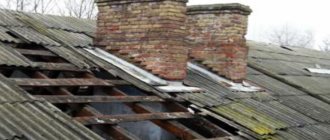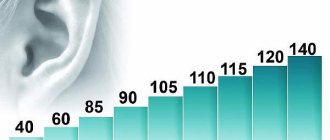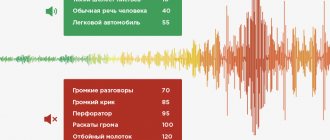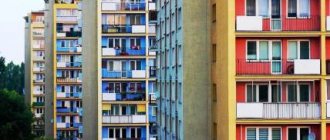When not to make noise
The law defines the concept of “night time”, which is subject to the ban. Peace and quiet must not be disturbed during the following periods:
- 22.00-6.00 - on weekdays;
- 23.00-8.00 - on weekends and holidays;
At the same time, the law allows making noise throughout New Year's Eve. Here, Chelyabinsk legislators did not set a time limit, and it turns out that people have the right to make noise from December 31 (from 6.00 - if it is a working day, from 8.00 - if it is a day off) until 23.00 on January 1 of the coming year.
Compliance with public order norms in the Chelyabinsk region is controlled by Art. 13 of Law No. 584-ZO of 06/02/2010 “On administrative offenses in the Chelyabinsk region.” Changes were made in July 2018 and then in February 2021. You can download the new version of the document at the end of the article.
The Administrative Code, like Law No. 227-ZO, prohibits making noise:
- on weekdays from 22.00 to 6.00;
- on weekends - Saturday and Sunday, as well as on state or regional holidays recognized as non-working days - from 23.00 to 8.00.
There is no such concept as a quiet hour in Chelyabinsk legislation. There is no prohibition on noise during the daytime, and people’s rest can be quite easily disturbed by the sound of a drill or hammer.
How do you know if noise is breaking the rules?
- First, the sound level must exceed state standards.
- Secondly, the law on silence in the Chelyabinsk region in 2020-2021 in an apartment building introduces a ban on certain types of activities.
The law on silence in Bashkiria - the time when you can’t make noise
Where should you not make noise?
The document defines a list of places where violation of the law on silence in the Chelyabinsk region can lead to a fine:
- holiday homes, sanatoriums, boarding houses, dispensaries,
- kindergartens, boarding schools, educational and healthcare institutions,
- hostels, hotels, apartment complexes and surrounding areas,
- staircases, elevators, entrances.
The listed objects are protected by law while ensuring peace and quiet of citizens.
How does the silence law work in Moscow?
Silence standards: regional and federal
At the state level, the peace and quiet of residents of apartment buildings is protected by Federal Law 52-FZ “On the Sanitary and Epidemiological Welfare of Citizens” dated March 30, 1999. Article 23 “Requirements for residential premises” states that these facilities must comply with sanitary standards in terms of noise levels. epidemiological requirements. They are specified in SanPiN 2.1.2.2645-10, where in Appendix 3 the permissible maximum noise levels during the day and night hours are included:
- during the day from 7.00 to 23.00 in the apartment building and in the surrounding area - 55 dBA and 70 dBA, respectively;
- at night from 23.00 to 7.00 in the house, as well as on the street - 45 dBA and 60 dBA, respectively.
These rules are required to be followed throughout Russia. Each subject of the Russian Federation has the right to adopt its own modifications to ensure the peace of citizens, but the night silence interval cannot be less than the federal one.
Law on silence in the Tyumen region 2021 - document review
How effective is the law on breaking silence in the Chelyabinsk region?
Most residents of the region, until recently, believed that filing complaints about noisy neighbors and asserting and defending their rights in court was not very effective. In fact, everything looks completely different, since after the federal law was adjusted to regional requirements, the law on silence in the Chelyabinsk region began to operate much more effectively. In connection with the introduction of changes, more and more citizens began to actively use this legislative provision, and therefore the number of “high-profile” violators began to gradually decrease. This is justified by an increase in the severity of penalties for violations of the law on silence in the Chelyabinsk region , and a significant increase in the amount of fines for violators.
What actions are a violation of the law on silence in the Chelyabinsk region?
Bringing to administrative liability for violation of the law on silence in the Chelyabinsk region by residents of apartment or individual buildings is provided for in the following cases:
In order not to be brought to administrative responsibility, you need to know how loud you can listen to music in Chelyabinsk and when you need to take a break. The law provides for very significant fines for violators. They can collect 1,000-5,000 rubles from a citizen, 5,000-25,000 rubles from an official, and 10,000-100,000 rubles from a legal entity.
This innovation is especially supported by parents who need to put their babies to bed during the day, elderly citizens and people working night shifts. According to the plan, the quiet hour should operate from 12:00 to 14:00.
In what cases is it okay to make noise?
The above documents regulate only general principles that make it possible to ensure the sanitary and epidemiological well-being of citizens and determine how long repairs can be made or otherwise disturb the peace and quiet of neighbors. Therefore, at the regional level they began to approve regulations that better protect residents from noise.
You may like => Law on silence in Volgograd in 2021
If your neighbors are causing loud noises that interfere with sleep and rest, first of all you need to find out the reason for the disturbance in the silence and try to come to an agreement peacefully. For example, sudden crying of a child is not included in the list of sources of noise for which penalties are imposed, since a ban on the expression of a child’s emotions will be regarded as an infringement of his rights.
Noise is a global problem for every citizen. The fact is that a person is almost constantly in a noise zone: in a store, on the street. However, everyone wants to relax after a hard day of work or school.
Law on silence in an apartment building Chelyabinsk
If someone disturbed your silence, especially at night, you can contact the local police officer. Based on the provisions of the Quiet Law, you can punish the offender. The law on silence in an apartment building gives citizens the opportunity to set a time frame for acceptable noise.
The regions of the country establish their own regulations in pursuance of this law. In particular, in the Chelyabinsk region there is a Law dated June 2, 2010 N 584 “On Administrative Offenses in the Chelyabinsk Region” (hereinafter referred to as Law No. 584).
What noise is prohibited?
Both regional documents contain information about the types of noise prohibited during the night break:
- loud activation of any television, video, audio equipment, the sound of which interferes with the rest of citizens;
- any equipment that amplifies sounds installed inside an apartment building, on vehicles or small retail outlets on the street;
- loud singing, laughter, playing musical instruments;
- sound activation of car alarms and any loud actions with the vehicle;
- launch of pyrotechnics;
- repairs, loading work, dragging heavy loads.
conclusions
Living in an apartment should be comfortable not only for its residents, but also for their neighbors. Both during the day and at night, no one should allow noise that exceeds the permissible limits.
For those who do not want to comply with the established rules, sanctions are provided.
You can find out more about the law on silence by watching the video:
See also Phone numbers for consultation Sep 22, 2021 kasjanenko 872
Share this post
Discussion: 6 comments
- Mokina Sveta says:
02/08/2018 at 07:04For us, the issue of a “noisy neighbor” was resolved quite easily. A local police officer was called several times to issue fines. The neighbor didn't pay. When he was not released due to unpaid fines while traveling abroad on vacation to Switzerland, he quickly paid for everything and became quiet and quiet!
Answer
- Anna says:
05/03/2018 at 15:17
If neighbors don’t know how to behave, this always leads to problems. It is not possible to come to an agreement with everyone, and, despite federal laws, it happens like this: a police squad arrives based on a complaint, and the noisemakers, seeing them through the window, fall silent. The police call, silence. And he leaves. And this can continue for months.
Answer
- Zheka says:
08/04/2018 at 20:45
...seeing them through the window, they fall silent. The police call, silence. And he leaves. And this can continue for months... It will not continue, I assure you. The employees interview the neighbors, and if the neighbors confirm, then the violator will not get away, and then summonses, or forced delivery of the violator to the department. A fine is required. If a minor rents an apartment, you see with the permission of the parents), then the case is sent to the PDN (for minors). I have experience. It works.
Answer
- Venus says:
01/27/2019 at 12:48
Why is there no random stomping in the list of noises? there are no other noises, only the constant pounding of heels on the floor, the running of children in the morning and at night, whenever we want, we immediately wake up and cannot fall asleep again
Answer
- Larisa says:
05/27/2019 at 23:53
Is it possible to get government assistance for soundproofing an apartment, or does such assistance as such not exist? First of all, the problem concerns those who live in big cities.
Answer
- Vika V. says:
01/19/2020 at 05:18
And if the neighbors constantly start screaming in the apartment after 00 at night, while law enforcement agencies practically do not react to this at all. What can be done in this case, where can I complain about them?
Answer
Punishment for an offense
If careless citizens do not know or periodically forget how long it is possible to make repairs or organize noisy games and parties, then the regional law on administrative violations immediately imposes material punishment (there is no verbal warning for the first time) in the form of a fine:
- for an individual - 1,000–5,000 rubles;
- for officials - 5,000–25,000 rubles;
- for a legal entity - 10,000–100,000 rubles.
The exceptions are:
- actions to prevent or eliminate the consequences of emergencies and accidents;
- preparation and holding of state, regional or religious events.
Law “On Silence” in Chelyabinsk
In addition, there is a general rule in the Code of Administrative Offenses of the Russian Federation (Article 6.4), which provides for fines for violation of sanitary requirements for the use of apartments (other residential premises). Under this article, you can attract those who violate the noise regime during the day when the permissible limits are exceeded.
Law Enforcement
In this case, a fine is imposed if they are carried out at the wrong time. On ordinary working days this time is from 22 to 6 o'clock, and on weekends (holidays) from 23 to 8. The size of the sanction for ordinary citizens is 1-5 thousand rubles, for officials from 4 to 5 thousand rubles, for legal from 10 to 100 thousand rubles.
You may like => Volgograd Kirovsky district financing of child benefits table
entails the imposition of an administrative fine on officials of executive authorities of the Chelyabinsk region, local government bodies exercising executive and administrative powers, in the amount of five thousand to ten thousand rubles; for employees of multifunctional centers for the provision of state and municipal services - from one thousand five hundred to three thousand rubles.
14. Unauthorized installation of temporary facilities, except for cases where liability for the unauthorized installation of facilities that are temporary facilities in accordance with this Law is provided for by federal legislation -
Article 13-1. Violation of restrictions on the retail sale of electronic nicotine delivery systems, electronic nicotine delivery system liquids, and nicotine-free electronic nicotine delivery system liquids
Note. Temporary facilities in this Law mean facilities intended for carrying out production and (or) business activities or meeting the personal needs of citizens, which are not real estate, including inflatable attractions (trampolines), non-stationary retail facilities, tents, pavilions, kiosks, hangars , metal garages, awnings, sanitary and storage facilities, fences, bunkers, trash cans, containers, container platforms, means of placing information (signposts, structures, structures, technical devices and other media intended for the dissemination of information, with the exception of information containing information of an advertising nature and (or) mandatory in accordance with federal legislation).
May 14, 2021 yuristco 464
Share this post
- Related Posts
- Journals VAC art history 17 00 09
- Fine for Repairs Belarus 2021
- Is it possible to sell non-alcoholic energy drinks when the sale of alcoholic beverages is prohibited?
- How long can a child stay out of school?











